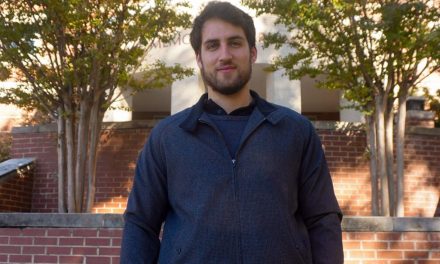By Joseph Williams
Word In Black
Less than a year after the Supreme Court voided race-based admissions policies in top colleges, diversity advocates breathed a sigh of relief when the high court passed on hearing a challenge to an initiative to bring more Black students to an elite Virginia magnet school.
But experts warn that the court’s decision not to hear a challenge to an admissions policy at Thomas Jefferson High School in suburban Washington, D.C., is more likely the justices deciding to hit the pause button on a politically charged issue — not a clear win for diversity in secondary education.
The court apparently “is not ready to opine on such a question” so soon after its landmark 2023 ruling, says Deborah Hellman, a constitutional law professor at the University of Virginia School of Law. While it’s hard to read the court’s motives, she says, “I think will be for some time.”
On Tuesday, the justices declined to add to their upcoming docket a case arguing that the admissions policies for the prestigious Thomas Jefferson High School for Science and Technology in Fairfax, Va., discriminate against Asian American applicants.
The highly-anticipated case, “Coalition for T.J. v Fairfax County School Board,” was brought by a group of Asian-American parents who argued that the strategies the school implemented to increase the number of Black and Latino students left their children out in the cold.
Although the conservative-majority court agreed to punt the case, Justice Samuel Alito wrote a 10-page dissent slamming the “indefensible” decision. He said a lower court ruling that now stands is “based on a patently incorrect and dangerous understanding of what a plaintiff must show to prove intentional race discrimination.”
The reasoning behind that ruling, Alito wrote, is “a virus that may spread if not promptly eliminated.”
At issue is a series of changes the high school made in the wake of the 2020 murder of George Floyd, when the country underwent a racial reckoning. The school board made what it called “holistic” changes to Thomas Jefferson High’s admissions requirements — including priority admission for the top 1.5 percent of eighth-grade students in the county’s public middle schools, elimination of the entrance exam, and waiver of a $100 fee.
The changes triggered an increase of nearly 1,000 more applicants, including substantial upticks in the acceptance of Black and Hispanic students. But Coalition for T.J. sued in federal court, and a federal district judge sided with them in 2022.
But in a 2-1 decision, an appellate court overturned that decision last year. In its ruling, the court noted that, even after the changes, Asian American students made up more than half of those who received offers of admission. White students made up 22 percent of the admission pool, with Latino students at 11 percent and Black students at less than 8 percent.
Hellman, the University of Virginia professor, says that although the Supreme Court’s dismantling of affirmative action in college admissions was a backdrop, the facts and issues raised in the Thomas Jefferson High School case are different, and that may have given pause to the justices.
In the college admissions case, race was an explicit factor in deciding who won admission to Harvard University and the University of North Carolina, Hellman says. But Thomas Jefferson, she says, adopted “a facially race-neutral policy. The new policy was one that didn’t use race-based classification.”
Though they lost at the Supreme Court, lawyers for Coalition for T.J. say they haven’t given up on trying to change the admissions policy at the high school.
“If anything, this multiplies our efforts,” Glenn Roper, a senior attorney for the Pacific Legal Foundation, which represented the plaintiffs, told Inside Higher Ed. “There are multiple unanswered questions from the Students for Fair Admissions ruling that the court is going to have to address eventually.”

This article was originally published by Word In Black.
The post SCOTUS punts on race and schools case appeared first on AFRO American Newspapers.











